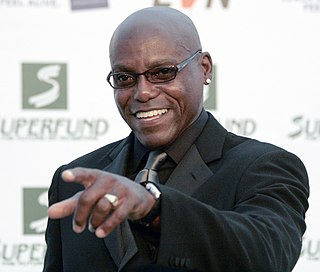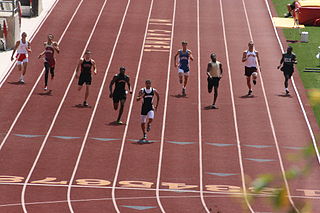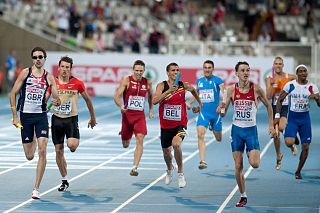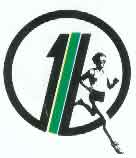Pre-IAAF
| Time | Athlete | Date | Place | |
|---|---|---|---|---|
| Pre-IAAF ratified bests (prior to 1966) | ||||
| 6.6 | 23 February 1935 | |||
| 23 February 1935 | ||||
| 26 February 1938 | ||||
| 25 February 1939 | ||||
| 1942 | ||||
The following table shows the world record progression in the men's indoor 60 metres , as recognised by the IAAF. The IAAF have officially ratified world indoor records since 1 January 1987; previous to this, they were regarded as world indoor bests.
| Time | Athlete | Date | Place | |
|---|---|---|---|---|
| Pre-IAAF ratified bests (prior to 1966) | ||||
| 6.6 | 23 February 1935 | |||
| 23 February 1935 | ||||
| 26 February 1938 | ||||
| 25 February 1939 | ||||
| 1942 | ||||
| Ratified | |
| Not ratified | |
| Ratified but later rescinded |
| Time | Athlete | Date | Place | |
|---|---|---|---|---|
| IAAF ratified bests (1966–1986) | ||||
| 6.6 | 27 March 1966 | |||
| 6.6 [lower-alpha 1] | 27 March 1966 | |||
| 6.6 | 27 March 1966 | Westfalenhalle, West Germany | ||
| 6.6 | 27 March 1966 | Westfalenhalle, West Germany | ||
| 6.6 | 14 March 1970 | Vienna, Austria | ||
| 6.6 | 13 March 1971 | Sofia, Bulgaria | ||
| 6.68 | 24 February 1973 | Senftenberg, East Germany | ||
| 6.62 | 24 February 1973 | Senftenberg, East Germany | ||
| 6.52 | 25 February 1973 | Zabrze, Poland | ||
| IAAF ratified records (1987– ) | ||||
| 6.50 | 15 January 1986 | Osaka, Japan | ||
| 6.44 | 15 January 1986 | Osaka, Japan | ||
| 6.52 [lower-alpha 3] | 21 February 1987 | Liévin, France | ||
| 6.51 | 21 February 1987 | Liévin, France | ||
| 6.41 | 7 March 1987 | Indianapolis, United States | ||
| 6.50 | 7 March 1987 | Indianapolis, United States | ||
| 6.48 | 13 February 1991 | Madrid, Spain | ||
| 6.45 | 29 January 1992 | Ghent, Belgium | ||
| 6.41 | 14 February 1992 | Madrid, Spain | ||
| 6.41 | 1 February 1998 | Stuttgart, Germany | ||
| 6.39 | 3 February 1998 | Madrid, Spain | ||
| 6.39 | 3 March 2001 | Atlanta, United States | ||
| 6.37 [lower-alpha 4] | 20 January 2018 | Clemson, United States [1] | ||
| 6.34 | 18 February 2018 | Albuquerque, United States | ||

Linford Cicero Christie is a Jamaican-born British former sprinter and athletics coach. He is the only British man to have won gold medals in the 100 metres at all four major competitions open to British athletes: the Olympic Games, the World Championships, the European Championships and the Commonwealth Games. He was the first European athlete to break the 10-second barrier in the 100 m and held the British record in the event for close to 30 years. He is a former world indoor record holder over 200 metres, and a former European record holder in the 60 metres, 100 m and 4 × 100 metres relay.

Frederick Carlton Lewis is an American former track and field athlete who won nine Olympic gold medals, one Olympic silver medal, and 10 World Championships medals, including eight gold. His career spanned from 1979 to 1996, when he last won an Olympic event. He is one of only six Olympic athletes who won a gold medal in the same individual event in four consecutive Olympic Games.

The first record in the 100 metres for men (athletics) was recognised by the International Amateur Athletics Federation, now known as World Athletics, in 1912.
The World Athletics Championships are a biennial athletics competition organized by World Athletics. Alongside the Olympic Games, they represent the highest level championships of senior international outdoor athletics competition for track and field athletics globally, including marathon running and race walking. Separate World Championships are held by World Athletics for certain other outdoor events, including cross-country running and half-marathon, as well as indoor and age-group championships.

Benjamin Sinclair Johnson, is a Canadian former sprinter. During the 1987–88 season he held the title of the world's fastest man, breaking both the 100m and the 60m indoor World Records. He won the 100 metres at the 1987 World Championships in Athletics; and at the 1988 Summer Olympics, but was disqualified for doping and stripped of the gold medal; and later he also lost most of the other medals he had achieved while being doped - with anabolic steroids. He was the first man who beat 9.9 and 9.8 seconds.

The 400 metres, or 400-meter dash, is a sprint event in track and field competitions. It has been featured in the athletics programme at the Summer Olympics since 1896 for men and since 1964 for women. On a standard outdoor running track, it is one lap around the track. Runners start in staggered positions and race in separate lanes for the entire course. In many countries, athletes previously competed in the 440-yard dash (402.336 m)—which is a quarter of a mile and was referred to as the 'quarter-mile'—instead of the 400 m (437.445 yards), though this distance is now obsolete.

The 4 × 400 metres relay or long relay is an athletics track event in which teams consist of four runners who each complete 400 metres or one lap. It is traditionally the final event of a track meet. At top class events, the first leg and the first bend of the second leg are run in lanes. Start lines are thus staggered over a greater distance than in an individual 400 metres race; the runners then typically move to the inside of the track. The slightly longer 4 × 440 yards relay, on an Imperial distance, was a formerly run British Commonwealth and American event, until metrication was completed in the 1970s.

60 metres, or 60-meter dash, is a sprint event in track and field. It is a championship event for indoor championships, normally dominated by the best outdoor 100 metres runners. At indoor events, the 60 metres is run on lanes set out in the middle of the 'field', as is the hurdles event over the same distance, thus avoiding some of the effects of the banked track encircling the venue, upon which other track events in indoor events are run. At outdoor venues it is a rare distance, at least for senior athletes. The format of the event is similar to other sprint distances. The sprinters follow three initial instructions: 'on your marks', instructing them to take up position in the starting blocks; 'set', instructing them to adopt a more efficient starting posture, which also isometrically preloads their muscles. This will enable them to start faster. The final instruction is the firing of the starter's pistol. Upon hearing this the sprinters stride forwards from the blocks.

The 1st IAAF World Indoor Championships in Athletics were held in Indianapolis, United States from March 6 to March 8, 1987. The championship had previously been known as the World Indoor Games, which were held once before changing the name.

Thomas Schönlebe is a retired East German track and field athlete who competed in the 400 metres. He won the gold medal at the 1987 World Championships. In that race, he set a European record of 44.33 seconds which stood for 35 years before it was broken by Matthew Hudson-Smith in August 2023.
Raymond Douglas Stewart is a former Jamaican athlete who specialised in the 100 metres event. As a junior athlete Stewart found much success at the CARIFTA Games, winning five gold medals within a four-year period. In 1984 he reached the 100 m Olympic final and won an Olympic silver medal for the 4×100 metres relay. At the 1987 World Championships he took silver in the 100 m and bronze with the Jamaican relay team. A leg injury in the 1988 Olympic final of the 100 m ruined his medal chances in both the individual and relay events.
The men's 100 meters at the 1988 Summer Olympics in Seoul, South Korea saw world champion Ben Johnson of Canada defeat defending Olympic champion Carl Lewis of the United States in a world record time of 9.79, breaking his own record of 9.83 that he had set at the 1987 World Championships in Rome. Two days later, Johnson was stripped of his gold medal and world record by the International Olympic Committee (IOC) after he tested positive for stanozolol. The gold medal was then awarded to the original silver medalist Lewis, who had run 9.92. On 30 September 1989, following Johnson's admission to steroid use between 1981 and 1988, the IAAF rescinded his world record of 9.83 from the 1987 World Championship Final and stripped Johnson of his World Championship gold medal, which was also awarded to Lewis, who initially finished second. This made Lewis the first man to repeat as Olympic champion in the 100 metres.
50 metres, or 50-meter dash, is a sprint event in track and field. It is a relatively uncommon non-championship event for indoor track and field, normally dominated by the best outdoor 100 metres runners. At outdoor athletics competitions it is used in the Special Olympics and a rare distance, at least for senior athletes. It is an alternative to the 60 metres running event. The imperial distance for 50 metres is 54.68 yards.

50 metres hurdles is a distance in hurdling, usually only run in indoor competitions. Because very few contests are held over the distance, most of the fastest times recorded for the event were set during specially measured and timed races over longer distances, typically the 55 metres hurdles or 60 metres hurdles.
Darrell Robinson is an American former track and field athlete who specialized in the 400-meter dash. He set a US high school national record of 44.69 seconds in the 400 m at the age of 18. He was in the world's top-five 400 m runners in 1985 and 1986. He won a bronze medal at the 1986 Goodwill Games, and won races at numerous high-profile track meetings.
Lyubov Kremlyova is a Russian former middle- and long-distance runner who competed internationally both for the Soviet Union and Russia. She had her greatest success indoors, winning medals at the 1991 IAAF World Indoor Championships and 1992 European Athletics Indoor Championships. She was stripped of a second World Indoor medal in 1995 after a positive test for steroids.
Sergey Valentinovich Smirnov was a Russian track and field athlete who competed in the shot put. He was a medallist at the IAAF World Indoor Championships in 1987 and at the European Athletics Indoor Championships in 1986 and 1987. Smirnov represented the Soviet Union at the 1988 Seoul Olympics and at the 1983 World Championships in Athletics.
The men's 60 metres event at the 1987 IAAF World Indoor Championships was held at the Hoosier Dome in Indianapolis on 6 and 7 March.
The world record for the 60 metres hurdles is recognised by World Athletics, the governing body for the sport of athletics, for both men and women. The event is recognised in indoor settings only. The current men's record is 7.29 seconds, set by the USA's Grant Holloway on 24 February 2021 in Madrid, Spain. The current women's record is held by Sweden's Susanna Kallur, with 7.68 seconds set in Karlsruhe, Germany on 10 February 2008.